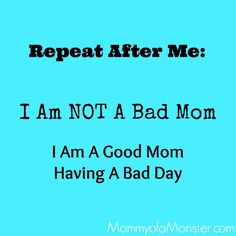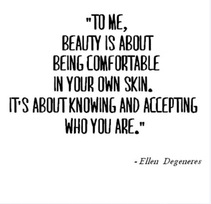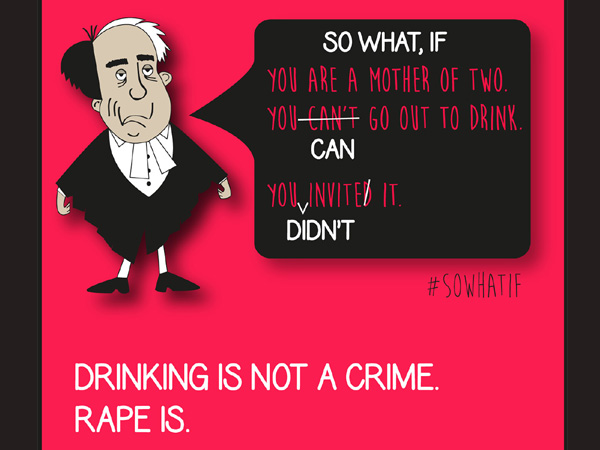|
The Vishaka Guidelines of 1997 and the subsequent Sexual Harassment of Women at Workplace (Prevention, Prohibition and Redressal) Act, 2013, have gone to great lengths to specify systems, processes and protocols to make the workplace safer and our lawyer friends tell us, are among the best such laws in the world.
While the law is quite rigorous, the implementation especially at the local district and state levels is still nascent. However, many leading corporates and institutions have gone ahead and implemented the Act in letter and spirit, often going beyond the law to cover all genders and taking a larger workplace safety view beyond sexual harassment. That said, all too often, reporting and getting action on sexual harassment is a real ordeal, even in work spaces where all the policies and protocols are in place. Often, the idea of where the incident(s) took place and whether they were at the office premises become the first line of questioning, and despite the growing virtual workspaces and blurring of boundaries between work and private spaces, and the wide definition of 'in the course of employment,' there is a reluctance to fully investigate a complaint if the incident happened outside the office. Secondly, despite very specific guidelines on how cases are to be documented, confidentiality is to be maintained, closure obtained and communicated, often action is through undocumented meetings, verbal commitments and actions oriented towards creating a 'compromise' especially where no hard evidence exists. Thirdly, leaks in the process mean the 'news' gets out, other employees take sides or form opinions and the work environment could become hostile for either or both the parties. In the process, the complainant who is reporting an offense ends up feeling victimized all over again, or - on the other hand, the one complained about finds their reputation tarnished even before they have had the slightest chance to defend themselves. Many times, the process is exhausting emotionally and the parties just want to close and move out or move on, and that then can leave the complaints committee with questions of what is fair or just, and if they really addressed the complaint fully. Point is, creating safe working spaces need to go far beyond documenting policies and procedures. Sensitizing all the people involved in the process is critical to its success, as is ensuring confidentiality and maintaining rigorous documentation. Wide-spread communication and keeping up awareness on the rights & responsibilities of all staff is important. That said, while there are some baseless and malicious complaints intended only to hurt, the larger reality is that most complaints are genuine and yet victim-blaming continues to be the norm. The complainant's personal history, habits, prior relationships, performance history at work, history with the person in question and everything else gets dredged up. That needs to stop for more people to feel confident enough about the system and the processes to report any issues, and for the work place to be fully safe. This post is inspired by a social media campaign by Himani Auplish aiming to increase awareness among the people about harassment after the harassment  In the USA, May is observed as National Mental Health Month. For much of the rest of the world, October 10th is the Mental Health Day, and some countries like Australia mark all of October as Mental Health Month. In India, the central agencies do mark October 10th, but there is no specific mental health month as such. Whether a day or a month, the aim is to increase awareness of mental health issues, the need for assessment & care, and to destigmatise mental health. Mental health conditions tend to be given the short end of the stick, with a little more than a sneer and judgmental comments such as, "You just have to decide," or worse, "You are just looking for an excuse for your laziness." In reality, mental health conditions such as depression or anxiety are very real and quite common. If understood and addressed, recovery is quite possible. Fact is, quite often, we speak of mental health issues as what the mythical 'others' likely have. When the MHA publishes statistics that say 20% of all Americans are likely to have a mental health issue each year, how many do you think would pause to consider if they might be among the lot? Irrespective of nationality, I would suppose that we ourselves do not want to think we may have an issue, while it is more comfortable to look at others and say they might have an issue. There is too much of an expectation we have from ourselves that we must, at all times, be perfectly well especially mentally, even if not physically. And that, needless to say, is just irrational. Mental health issues can happen to anyone no matter what race, age, class or community. While certain social situations do create greater distress, even the most privileged of communities are not immune to mental health issues. So, what can one do? The simplest thing to do is to a quick self-check. Mental Health America has a great set of specific self-use tools that can help you decide if you might have an issue and if you cold use some help. Go ahead, click on the image and take a few minutes to check in on yourself. You owe it to yourself.  Mother's Day was a few days ago and we have been thinking about parenting in general, and motherhood in specific. The idea of 'Mother' is such a culturally loaded one, no matter what culture. Mothers are supposed to always be up and about, care deeply, cook and clean and dust and mop, and go to work, and everything else. It really could be such a pressure. What happens to those who find motherhood quite hard? I am thinking of mothers who go through post-partum depression, For many, the pressure to be a 'good mother' is so severe on top of their depression, with relatives and others commenting on them being 'weak' or 'uncaring' that makes it hard for them to seek help, and that leaves them vulnerable to chronic depression. I am also thinking of women who find it hard to enter motherhood, or those who do not wish for motherhood for themselves - and the degrees of emotional turmoil they might go through. Even otherwise, for mothers well into motherhood, trying to balance their different roles as women, spouses, working women, housekeepers on top of being mothers becomes really hard. The pressure to be good at everything means that any small error of judgement on the child's part, say if the child bit another in the sand pit, or was caught sneaking a smoke outside school, gets a sharp reaction, and the disapproval falls squarely on the mother's shoulders. Disapproving eyes pass judgement that 'she was too busy at her job that she failed at her "real" job'. In India, as in much of the rest of the world, child care is considered primarily the women's job. An involved father is lauded, and a not-so-involved one forgiven, but no such luxury of lenience for the mother though. At the work-space too, maternity often limits career options, and often this leads to very capable women leaving the workforce for years if not for good. Sometimes, it leaves the woman, proud and happy as she is in her motherhood, angry and upset at the workplace, stressed about it, and perhaps, frustrated at her struggles to reach her full working potential. The point is: What is Mother's Day about? Should it really be about celebrating the 'super-woman' status of mothers, or can it also be about challenging our collective consciousness on our expectation that mothers must be super-human? Can we look at the pressures and stresses that mothers go through, and actually make it easier for mothers? Not merely by getting them breakfast and a bunch of roses, but to look at ourselves, the roles we play and the systems we have to help women through motherhood without needing them to be anything more than human. For any body starting a relationship, there is such a lot of pressure to get (or to not get) physically intimate. This is not just for young adults starting off in their first relationship, though of course that is specifically more challenging, but also for others. Think of people starting a new relationship after a break-up, or after the loss of a long-term partner. Think of people with disabilities or other challenges. It can be a challenge for anybody Often, we hear scary stories of the effects that getting into it without full readiness can have, including damaging one's sexual expression, changing how one feels about themselves, or as simple and yet devastating as changing the relationship dynamics. Of course, when you are ready for it and take this step, it can be a beautiful and life-enriching experience. So, how does one really know when to take this big step? You should ask yourself questions like - Why do I want to get physically intimate? Is it because of peer pressure? Is my partner forcing me? Do I know the person well? Why with this person? The most important thing is to listen to yourself, and trust yourself. At any time, if the answer to any of the above questions is tentative or unsure, then perhaps wait a bit, and strengthen the relationship. Take the time to really know yourself and prepare, both emotionally and in other ways, including educating yourself on safety and being sure that you are in a comfort zone.  Take a minute sometime to observe any infant: No matter what they look like, they are surprised and delighted at their bodies. They coo and gurgle at discovering their toes, finding they can hold, and are constantly engaged with their own body. What happens to that joyful, positive curiosity about our bodies when we grow? The answer is that we learn to NOT be body positive. Every day, we are bombarded with images of perfect bodies, smiles, hair and smells in a million marketing commercials, showing those ‘perfect’ people succeeding while in the background ordinary people look on in envy. Is it really true? Do better looks and six-pack abs actually guarantee you success? Well, there is no concrete proof of that, and in fact, the opposite has been shown to be true: If you don’t feel good about your body as it is, you are likely to be less happier. Don’t get me wrong: I am not saying one should not exercise or be well put-together. I am saying you can be fit, healthy and smart no matter what your body is like – no matter your skin colour, hair volume, body type etc. How to know if you are body positive? Look at yourself in the mirror: 1. Notice 5 things you really like about your body 2. Notice 5 things you really dislike about your body If 2 was easier, you have probably taken to heart many of the hurtful messages from the media, society or even in what you tell yourself, and it is time to come back to being body positive. How to get back to being body positive? Here are 5 basic things you can practice: 1. Stop commenting on others’ bodies. Assume that everyone knows their body and love how it is 2. Don’t assume anything by how one looks. Fat people aren’t necessarily lazy. Fair skinned people need not be fair in their dealings with others. 3. If someone comments on your body, just accept it. “You have become dark” is only a bad thing, if you let it be 4. Reject the media’s portrayal. Remember: The dark, very hairy & moustached Anil Kapoor was the hottest actor some 20 years ago! 5. And above all: Love your body. Be grateful for it Enjoy what your body allows you to do. Treat your body with kindness & gentleness like you’d treat a good friend! |
InnerSight BloggersAjanta, Mahesh and other InnerSight counsellors and guest contributors are happy to share their thoughts here. Categories
All
Archives
September 2020
|


 RSS Feed
RSS Feed